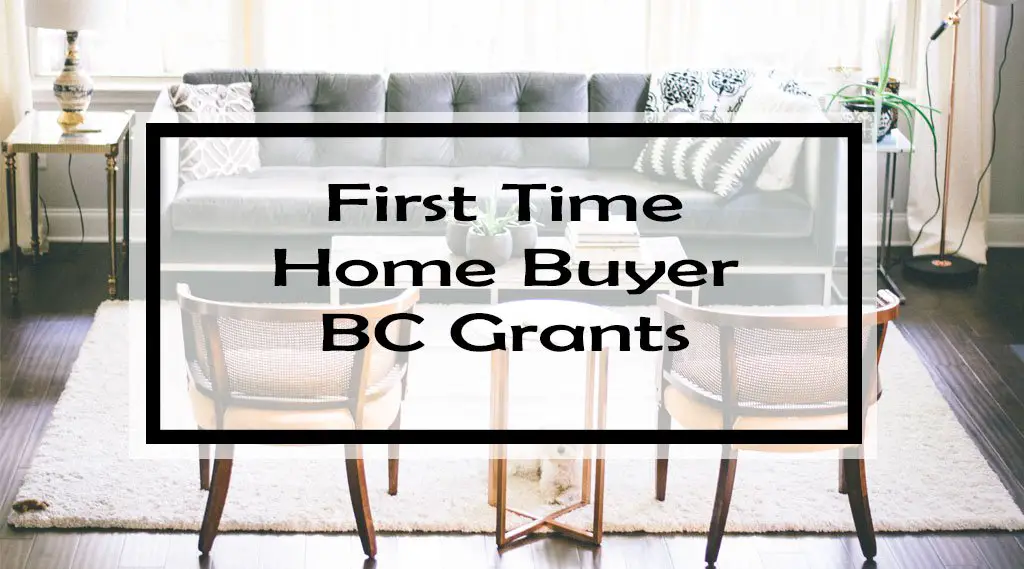
Let’s face it: homes in British Columbia aren’t getting any cheaper – which is why, if you’re a first time home buyer in BC, you need to take advantage of as many free government programs as you can…Well, you’re in luck – because there are currently a bunch of programs out there to help you buy your first pad (is that a 70s word? Excuse me…)We’ll start by discussing programs that B.C. residents can use for their first home purchase, but that are available to all Canadians, then dive into programs that are available only for B.C. residents…
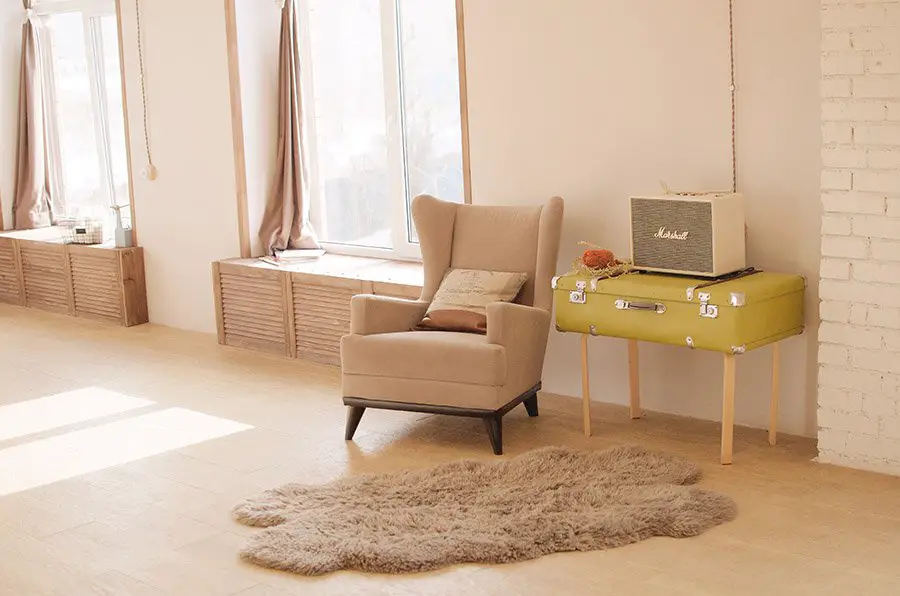
Federal Government First Time Home Buyer Programs
Federal First-Time Home Buyers’ Tax Credit
After purchasing a qualifying home in British Columbia, you can receive what amounts to a rebate on your following year’s federal tax return of up to $750 if you’re a first-time home buyer. It may be a little confusing to receive this credit, because you must write off $5,000 on the correct line of your tax form, but once you do, it calculates out to the $750 credit.For example, if you purchase the home in this year, you’d receive the credit on your today’s tax return, which you’d file in early 2019. This means you won’t receive this rebate at the time of the home purchase, but it can be a nice amount to receive off your tax bill several months down the road.The First-Time Home Buyers’ Tax Credit works for nearly any Canadian citizen who is purchasing a home for the first time, but you’ll want to click the link to see the few restrictions that do apply.
RRSP Home Buyers’ Plan
If you have a Registered Retirement Savings Plan (RRSP) through your employer, you can borrow money you’ve saved in this plan to help with the purchase of the home, such as for the down payment. You can borrow up to $25,000 (depending the amount that’s in your account) through the RRSP Home Buyers’ Plan (HBP). And if you and your spouse are buying a home for the first time together, you each can borrow $25,000 from your individual plans for a total of $50,000. You can repay the loan over a 15-year period. This program is available to all Canadians.
Goods and Services Tax Credit
If you meet income thresholds, you can receive a rebate for up to 5% of the federal sales tax you pay on retail purchases and real estate sales through the GST/HST credit, which potentially gives first-time home buyers a break on the financial burden of renovating or buying a home. You don’t have to apply for this credit, but you must be at least 19 years old, you must be married or have a common-law partner, and you need to be living with at least one child.
You then must have filed a federal tax return in the prior year (even if you didn’t owe tax payments). Your income level based on the tax return will determine whether you qualify for the credit.British Columbia offers an additional credit related to this, called the BC Climate Action Tax Credit (BCCATC). Low income B.C. taxpayers could receive up to $135 per year per individual.
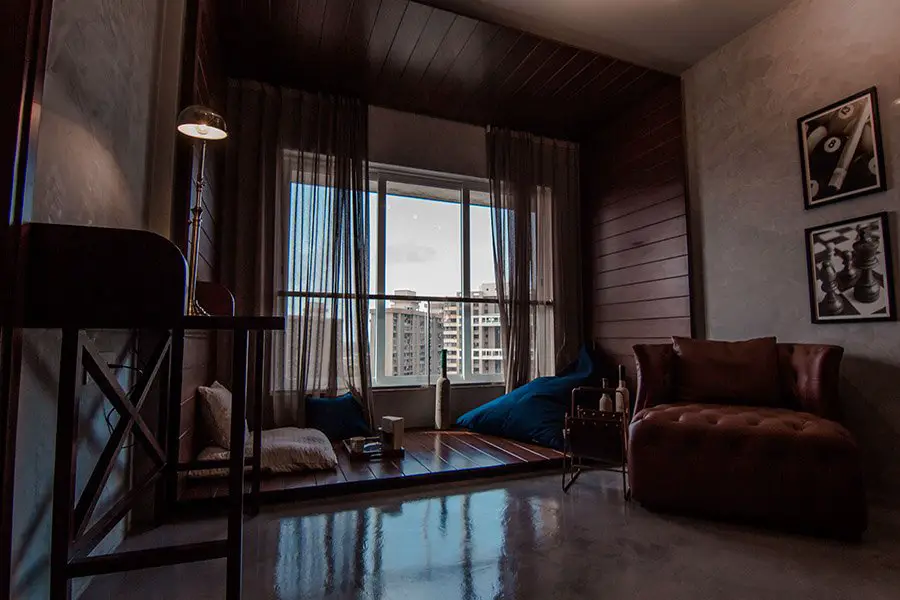
B.C. Resident-Only First Time Home Buyer Programs
Now we’ll list a series of programs that first-time home buyers who live in British Columbia can use to help with the home purchase or to perform renovations on the home right after they move.
B.C. First Time Home Buyers’ Program
For B.C. residents, the provincial government provides qualifying first-time home buyers the option of receiving a full or partial exemption from the property transfer tax payment required with a home purchase.To qualify, the home purchaser must be a Canadian citizen or permanent resident who has lived in British Columbia for at least 12 months or who has filed at least two tax returns as a British Columbia resident in the past six years. If you’re a first-time homebuyer, but you’re purchasing the home with someone who has owned a home in the past, you can still qualify for the tax exemption for the percentage of the property you own.Restrictions apply for the B.C. Home Buyers’ Tax Credit, based on the value of the home and the size of the property. If you don’t qualify for an exemption for the full amount of tax due, you may still be eligible to receive an exemption for a portion of the amount due.
B.C. HOME Partnership
The BC Home Owner Mortgage and Equity (HOME) Partnership program assists first-time home buyers with the down payment on a home loan. This is a low-interest loan specifically intended for the down payment that can be repaid over several years, making it easier for the home owner to come up with the down payment required.At the time of this writing, the BC HOME Partnership program is not accepting new applications, but those interested are encouraged to check back with the web site for potential changes.
Home Renovation Tax Credit for Seniors and Persons with Disabilities
When renovating a B.C. home for seniors or persons with disabilities, you may receive a credit for a portion of the expense. If, for example, you’re purchasing a home for the first time and an elderly relative will be living with you, some of the money you spend on renovations to make the home safer potentially will be eligible for the credit.The renovations must fit into the rules for acceptable projects for the program, which would include things like installing a walk-in bathtub or laying down non-slip flooring. Making a renovation that would increase the value of the home without making it safer for a senior or a disabled person would not qualify.You can claim up to $10,000 in expenses on your tax form, and the credit will be for up to 10% of the amount you’ve claimed for the Home Renovation Tax Credit.Additionally, those first-time home buyers in B.C. who live with people who have diminished physical abilities and a low income level can receive grants to perform renovations to the home to improve accessibility through the Home Adaptations for Independence (HAFI) program. Income and property value limitations apply.
Property Transfer Tax Breaks
Multiple programs exist to provide help for B.C. residents who are purchasing a first home and need to pay property transfer taxes.
- Home Owner GrantIn British Columbia, you may qualify for the Home Owner Grant, which reduces the amount of property transfer tax you’ll pay for your primary residence up to $570. Seniors, veterans and people with disabilities will be eligible to receive a larger grant (up to $845). Those living in the Vancouver area may be eligible for an additional $200 in grant money. You either must pay property taxes to a municipality or to the B.C. province if you live in a rural area to qualify. The grant, awarded annually, is available to any home owner, including a first-time home buyer.
- New Home Construction: If your first home will be a new construction home, you can apply for some property transfer tax breaks through the Newly Built Home Exemption. Some people will be eligible for a full exemption from the property transfer tax, while others will be able to receive a partial exemption, depending on the value of the property and income levels. If you paid a property transfer tax when you purchased land for the new home construction, you even may be able to receive a refund for that payment after you complete the home build.
- People 55 and OlderFor those 55 and older, you may be able to apply for a deferral of your property transfer tax payments on your principal residence to the municipality or to the B.C. province through the Property Tax Deferment Program.
- Families with ChildrenShould you have a child living with you or attending a secondary educational institution, you can apply for a low interest loan that would pay your property taxes on the B.C. home you just purchased. The loan is repayable over time, but restrictions apply. For example, the total amount you owe on the property must be 85% or less after receiving the Families with Children Tax Deferment Program loan.
- Agricultural LandThose who are purchasing their first home on agricultural or farm land may be eligible for additional tax breaks from the B.C. government, depending on how they will use the land. For example, you could reduce your school tax assessment by up to 50% if the property is in the Agricultural Land Reserve.
Energy Efficient Home Improvements
If you want to do immediate renovations after buying your first home, British Columbia residents have many programs available to help with expenses from projects that generate better energy efficiency and use of natural resources.
- CHMC Green HomeIf you are renovating an existing home to make it more energy efficient, the CHMC Green Home program may refund up to 25% of the premium for your mortgage loan insurance. You must apply for this program, and you’ll need to have your home’s energy efficiency rated before and after the renovation. Genworth Canada also provides a similar program for those who use Genworth insurance premiums.
- EnergyCoachThe BC Home EnergyCoach Program is available to residential customers who are performing renovations on the home to create a better level of energy efficiency. Rebates are available for things like insulation, a heat pump, a natural gas heating system, or a water heater. Some portions of the rebate require an evaluation before and after the work is completed. Depending on the type of work being done, the rebate could range between a few hundred dollars and several thousand dollars.
- BC HydroFor low-income first-time homeowners in the BC Hydro service area, the BC Hydro & FortisBC Conservation Assistance Program can provide free home energy upgrades, ranging from efficient light bulbs, insulation, or energy efficient appliances. The program includes a free home energy audit.
- Oil to Heat PumpIf you want to change from an oil heating system to a heat pump, BC residents can apply to the Oil to Heat Pump Incentive Program to receive a rebate of up to $1,700. (The program will stop taking new applications in late September this year.)
- Water SavingsThe Tap by Tap Program provides water saving kits for free in participating communities in British Columbia for low-income first-time homeowners, including showerheads and faucet aerators. At the time of this writing, the program is available for those in Capital Regional District multi-unit buildings and in North Cowichan and Duncan.
- Older Homes in VancouverAs a first-time homebuyer in Vancouver, if you’ve purchased a home that was built before 1940, you may be eligible for the Heritage Energy Retrofit Grant. ?This provides help with paying for energy and water efficiency improvements, such as replacing an oil heating system. Rebates can total up to $6,000 for a home heating fuel changeover or up to $3,000 for other types of improvements.
Additional Energy Saving Grants
Outside of Vancouver, your local municipality in the B.C. province may offer additional programs aimed at all home owners, including first-time homebuyers, that will provide rebates when you perform installations of energy efficient products and systems.
- ChilliwackInstall a low-flow toilet as a resident of Chilliwack, and you may be eligible for a $50 rebate.
- DeltaShould your newly purchased home need a new sidewalk or gutters, the city of Delta may share some of the costs with qualifying homeowners.
- NanaimoResidents of the city of Nanimo are available for a few energy efficiency rebates that you could install as a first-time homeowner at your new property for items like a low-flow toilet or a new woodstove. Residents of the Regional District of Nanimo have a variety of rebate options for home improvements aimed at energy efficiency, including wellhead upgrades, septic system maintenance, renewable energy system installations, and using graded site-cut timber for renovations
- NelsonNelson Hydro customers can qualify for a program that provides a free energy evaluation at the home, as well as rebates for installing energy efficient systems.
- Sidney and North SaanichResidents of this area who participate in the BC Hydro program we mentioned earlier are eligible for an extra $500 rebate. You may qualify to receive an energy saving smart strip as well.
5 Tips for Affording Your First Home in B.C.
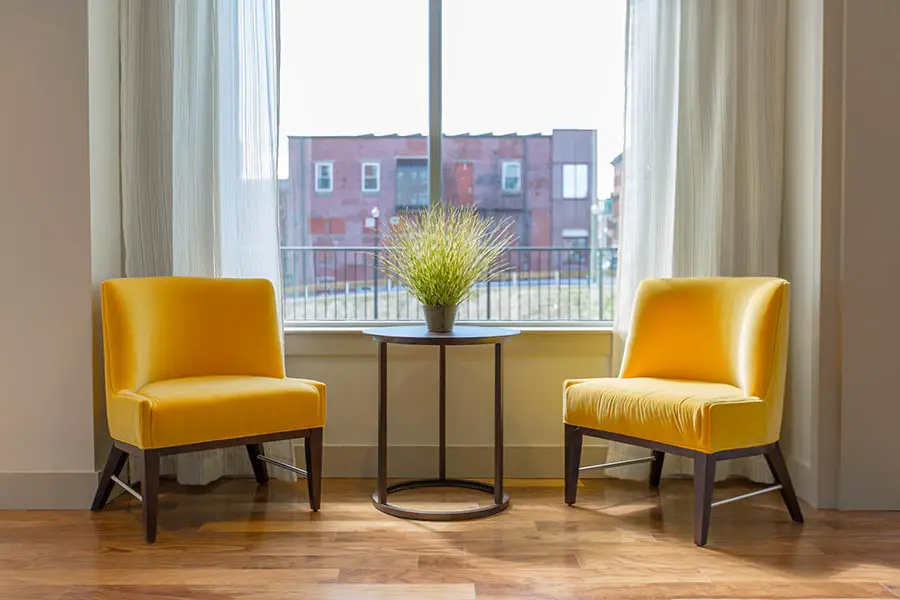
Even though all the grants, tax breaks, and low-interest loan options we’ve listed for first-time British Columbia home buyers make the process easier to afford, it can still be intimidating to attempt to purchase your first home.
We’ve collected five additional tips that can help you feel more comfortable with the entire home purchase process.
1. Calculate What You Can Afford
The first step to searching for a home is figuring out exactly what you can afford. By having a number that you can afford in mind, you’ll save a lot of time in the home search. After all, why look at a home that costs twice as much as you can afford?
(And if you’re feeling jealous about what someone else can afford versus what you can afford, just think about all the extra taxes and maintenance costs those people with the six-bathroom, eight-bedroom homes must pay.)Next, you’ll need to understand how a mortgage works. In basic terms, this is a long-term loan that you’ll repay over a period of 25-30 years. As part of this loan, you’ll pay interest, so, in the long run, you’re paying far more than the amount you’re borrowing.
But because your home value will almost certainly appreciate over time, you’re also gaining equity in the home, which is money you can recoup when you sell the home later.Online mortgage calculators can help you determine the purchase price you can afford by showing you what your approximate monthly payment will be.
Beyond using the best mortgage calculators we’ve listed below, don’t forget to add in costs for utilities and any renovations you may have to do to make the home work for you.
2. Find Money for a Down Payment
The down payment you can afford will play a huge role in determining the home you can afford, the interest rate you’ll pay, whether you need mortgage premium insurance, and, ultimately, whether you’ll even qualify for a mortgage.
A down payment is an upfront lump sum you’ll pay before you apply any money you receive from a mortgage loan toward the home purchase. If you’re buying a $300,000 home, a $30,000 down payment would be 10%, for example.At the time of this writing, if you have less than a 20% down payment, you will need mortgage premium insurance. Understand that mortgage premium insurance protects the lending institution if you default on the loan; it doesn’t protect you in any way.
Mortgage premium insurance doesn’t reduce your principal either. It’s just money you’re giving to the bank for the ability to hold a mortgage loan that’s more than 80% of the property’s value. With some lending institutions, you may not even qualify for the mortgage if you have less than 20% available for a down payment.So it’s in your best financial interest to try to have at least a 20% down payment available. To find extra money to save for your down payment, consider making your own coffee at home or eating out less often. Little amounts can add up over time. Consider adding a side hustle on the weekends too.Beyond the savings you’ve accumulated, we’ve listed some sources for finding down payment money above, including low-interest loans and borrowing from your RRSP.
3. Understand Changing Interest Rates
There’s one sure rule when it comes to home buying and finding the right mortgage: Interest rates are going to change over time. However, you don’t necessarily need to obsessively track those changes on an hour-by-hour basis. (In other words, give your Internet browser refresh button a rest.)Yes, interest rates are important, as a higher interest rate means you won’t be able to borrow as much money as you can with a lower rate. However, don’t settle for a home you don’t really want because you want to make the purchase quickly before interest rates increase. Rather than freaking out over interest rate movements, you’re better served by doing a few other things to save some money on your mortgage. For example, try shopping around at different banks to find the best interest rate.
Work to improve your credit score so you qualify for a lower interest rate. Most importantly, save up for a larger down payment to eliminate the need to pay mortgage premium insurance.
4. Understand Home Prices
Housing prices can seem hard to understand to a first-time home purchaser. You look at that huge number for the purchase price of the home listed on the realtor’s web site, and you naturally freak out a bit, wondering how anyone could ever afford such a purchase. Instead, take a deep breath. Understand that the huge number simply doesn’t compute for most people. You’re not alone.Instead, use one of the mortgage calculators we listed earlier to break down the purchase price for the property into a monthly payment number that’ll be easier for you to understand and that’s easier to compare to a rent payment you’re making now.Just remember when comparing your proposed mortgage payment to your rental payment that you’ll have to add in utility costs to the monthly mortgage payment, especially if utilities are included in your current rent payment.
You’ll also have to pay for your own property maintenance and home repairs with a home purchase, whereas those items are covered for you when you’re renting. But with a home purchase, you’re building equity in the home, meaning it will grow in value at the same time your total loan value shrinks over time, which is a great feeling!
5. Keep Your Expectations Reasonable
Finally, understand that the home buying experience feels great when you’re finished, but it can be extremely stressful while it’s occurring. First, you have the time invested in searching for homes, seeing homes in person, and applying for the mortgage. Then, if you find a home you love, you have the stress of trying to figure out what to offer for a price, all while hoping someone else doesn’t swoop in and put in a better bid than you.
If the seller ends up accepting your bid, you still may have to work through several conditions before the sale goes through. It all can be very stressful. So try to stay calm throughout the process. Don’t lets the highs and lows of this process discourage you. Yes, we know: That’s easier said than done. But if you understand ahead of time there’s a potential of a roller coaster of emotions, you hopefully can keep your emotions somewhat grounded during the overall process.Also understand that – as a first-time homebuyer – you may not be able to afford a home in the exact location you want, with the exact features you want, or with the yard size you want. You’re probably going to have to compromise on a few items.But don’t be afraid to make a few sacrifices in your first home. What you may find is that you really don’t miss those features you thought you had to have once you move into the first house.
Or maybe you’ll find that you actually want a feature you never considered after you’ve living in the home for several months. You always can do a remodeling down the road and add that must-have feature.

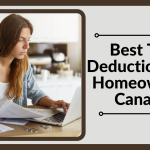




Hi,
My annual income is 33,000 with a monthly car loan of $387.00
I personally have only $40,000 as a down payment and have a potential 1985 condo for $220,000
Apparently the bank can only approved my loan of $100k.
What other grant or help can I get to be able to close this subject.
Please advise, great appreciated.